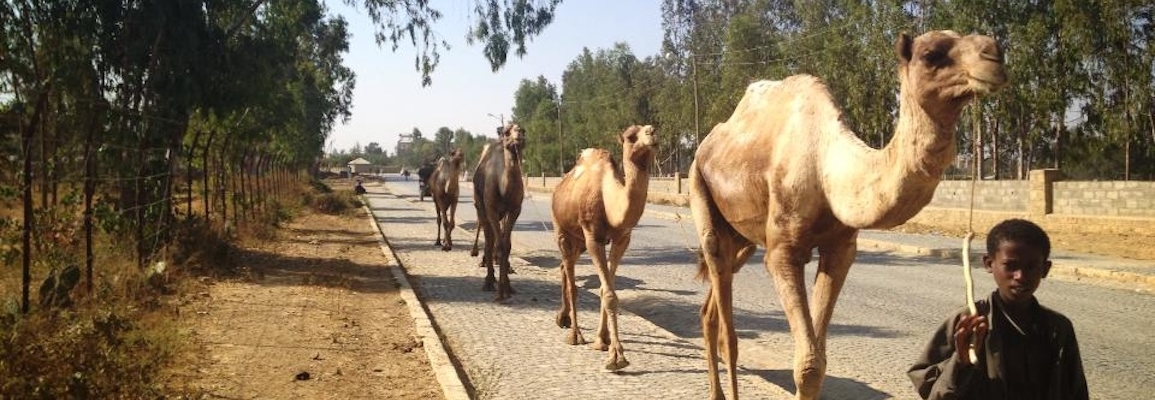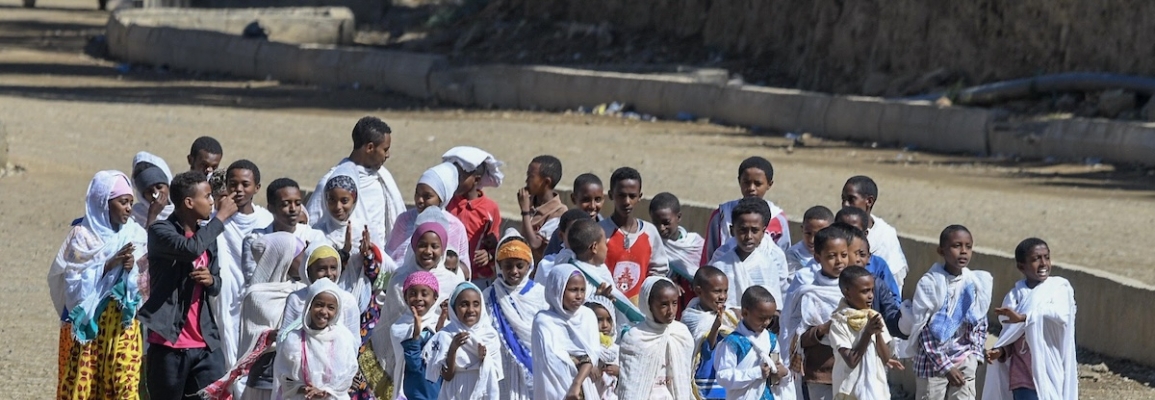Program Dates: May 24, 2024 - June 7, 2024
Ethiopia has a rich and diverse culture that plays a role in the health of its people. In this course students will have the opportunity to compare and contrast the traditional and western medical practices that influence the health of Ethiopians. With globalization and the advancement of technology competing with long standing cultural practices, health in Ethiopia is being influenced in many ways. Students will have the opportunity to experience different levels of healthcare and how healthcare professionals manage the different outcomes from these influences. We will also learn about the work of non government organizations and their role in promoting health in communities. This will be seen in the capital city of Addis Ababa, the smaller city of Hawassa and in rural communities. This is a service learning course, so students will have the opportunity to participate in service activities such as health education. Beyond the experience of engaging in healthcare, students will be taken to either Gondar to see the ancient city and castle or go to the Bale Mountains National Park to learn about the endemic flora and fauna the national park has to offer.
Locations
Ethiopia is in the horn of Africa. It is a landlocked country and borders Eritrea, Djibouti, Somalia, Kenya, South Sudan and Sudan. The Great Rift Valley runs through the country. The capital city is Addis Ababa.
Ethiopia has a population over 120 million people, making it one of the second most populated countries in Africa. Two fifths of the population are under the age of 15 years. The population growth rate is 2.5% annually. While the people are young, Ethiopia is one of the oldest countries with a rich history. The oldest dated human bones were found in Ethiopia. Ethiopian culture is very diverse. There are approximately 100 languages spoken. The three major religions are Orthodox Christian (43.1%), Islam (34.1%), and Protestant Christian (19.4%). The Ethiopian people are very proud (rightfully so!) that the country was never colonized.
The health of the people in Ethiopia has improved significantly in the last decade. The current life expectancy is 65 years compared to 58 in 2010. The infant mortality rate in 2021 was 34 per 1,000 live births compared to 54 in 2010. The under-five mortality rate is 46.8 deaths per 1,000 live births. The leading cause of death in this age group is acute respiratory illness followed by diarrhea. While there is still work to do, many lives are being saved through education, preventative measures and treatment.
Academics
Course Prefix | Course Name | Credits | Instructor |
NUR 3540 | Ethiopia: A Look at Health | 3 | Dr. Rebecca Liljestrand and Dr. Brian MacHarg |
Faculty Leaders
Dr. Rebecca Liljestrand
Clinical Instructor, Department of Nursing
Email: liljestrandrl@appstate.edu
Dr. Liljestrand has been a nurse for over 20 years. She has worked in acute med/surg and oncology settings as well as outpatient offices treating substance use disorders and women’s cancers. She lived in West Africa for two years while running rural maternal and child health programs. In addition, she has worked in 10 different countries managing nutrition and HIV/AIDS programs. She currently teaches in the nursing department at Appalachian State University, specializing in community and mental health. Dr. Liljestrand is passionate about looking at healthcare beyond the traditional setting and seeing the opportunity healthcare providers have to influence the health of individuals as well as the population through prevention and health promotion.
Dr. Brian MacHarg
Director of Academic Civic Engagement
Email: machargbd@appstate.edu
Dr. Brian MacHarg is the Director of Academic Civic Engagement. He works with App State faculty to support the integration of service-learning and other forms of experiential education into the curriculum. He teaches classes on service, civil discourse and education and has taught numerous courses abroad, including two previous classes to Ethiopia. He is extensively involved in international efforts and served as the co-director of the Mandela Washington Fellowship at App State from 2016-2022. He regularly gives talks on service-learning, civic participation and citizenship to international audiences as part of the US Speakers Program of the US Department of State. His PhD is in Education from Barry University in Miami, Florida where he focused on the ethical motivations for international civic engagement.
Program Cost: $5008
Program cost includes flight, most meals, lodging, in-country transportation, and tickets/admission to museums.
Please note - Students are responsible for the total program cost upon submiting the application and deposit. Refunds are contingent upon meeting the minimum enrollment of the program. If a student decides to withdraw before departure, that student may be eligible for a refund if the program has met minimum enrollment and is therefore viable.
Non-billable costs are estimates only and will be affected by personal spending habits, currency fluctuations, etc. Prices listed in USD unless otherwise noted. Students are encouraged to start planning for their study abroad program costs well in advance.
Payment Schedule | Amount | Due |
Deposit | $300 | Upon receipt of application |
Remaining balance due | $4708 | 3/19/2024 |
Estimated Additional Expenses | |
Undergraduate Tuition - Resident | $153 / credit hour |
Undergraduate Tuition - Non-Resident | $173 / credit hour |
Additional meals and spending money | $300 |
Passport | $150 |
Vaccines | $300 |
Visa | $82 |
Appalachian reserves the right to cancel or alter the program format or to change costs in case of conditions beyond the university's control. Further details about Appalachian's withdrawal/cancellation policy can be found at this link.
Application Process
- In order to apply for this program, you will need to contact one of the program leaders and provide your Banner ID and email address. Program leaders may request additional information or a meeting to discuss the details of the program and your interest.
- When permission to apply for the program is granted, you will receive an email from your program leader with instructions to apply.
- Apply to the program following the instructions from the program leader.
- Print, sign and drop off your application at the Office of International Education and Development at Plemmons Student Union (PSU), Suite 321 ( 3rd floor), 263 Locust Street Boone, NC 28608. Your application will be considered complete when you have submitted your digital application, paid the $300 deposit, and dropped off your printed and signed application. The fee cannot be paid until it appears on your student account. Please note that it may take 2–3 business days for it to post to your account. You will receive an email with Instructions for paying the deposit fee. Instructions can also be found in the application.

